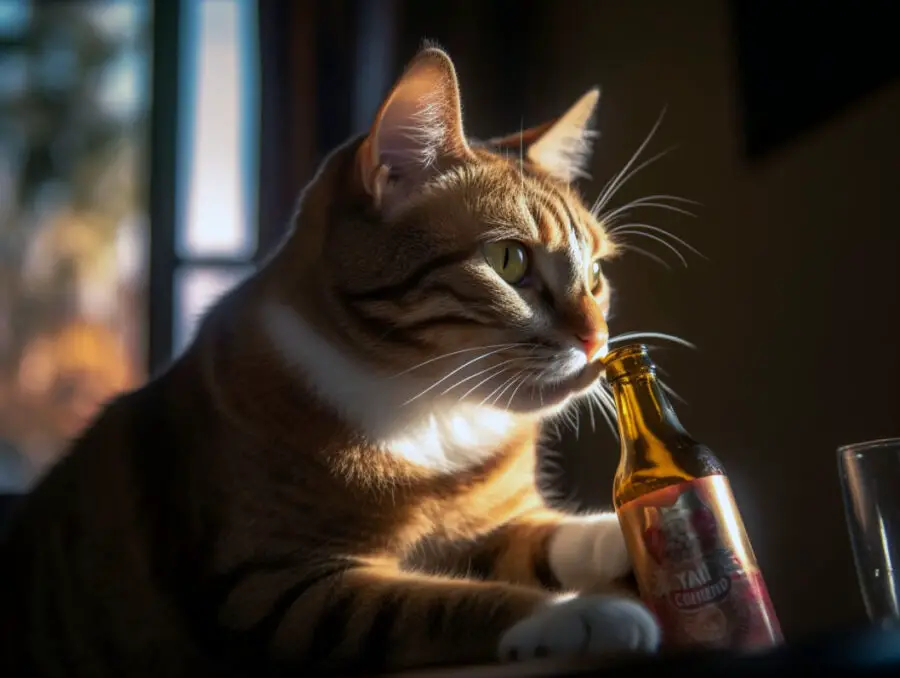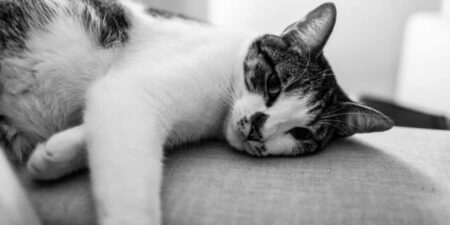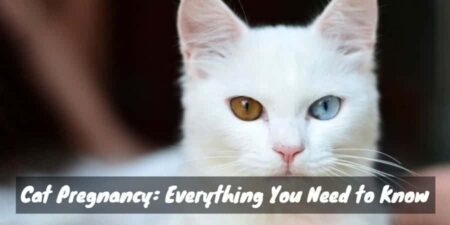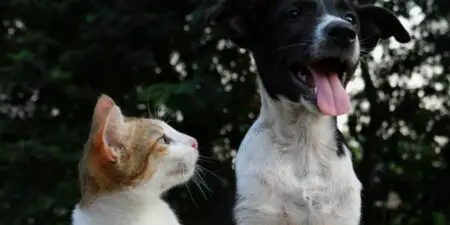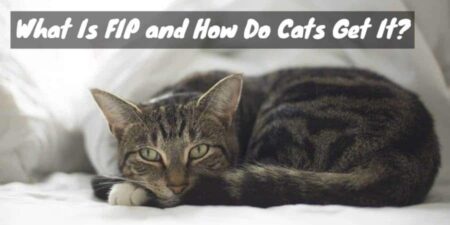Have you ever been lounging on the couch, enjoying a fizzy soda, and wondered if your feline companion could share the bubbly experience? While our pets often exhibit human-like behaviors, it’s important to remember that their dietary needs are not the same as ours.
We all love to give treats to our pets, but sometimes what we perceive as a treat can be harmful to them. Soda, a common beverage in many households, might seem like an innocuous shareable treat, but the reality is far from it. As we dive into the world of feline dietary needs and the effects of soda on their health, you’ll learn why soda and cats are not a good mix.
This comprehensive guide will walk you through the science behind why cats shouldn’t drink soda, the potential health risks, and expert opinions about cats and soda. So, let’s pop the lid off and get started!
Understanding Your Cat’s Dietary Needs
Cats, being obligate carnivores, have specific dietary requirements that are significantly different from humans. They need a diet rich in protein, with essential nutrients, vitamins, and minerals derived from meat sources. They also require a proper balance of fats and carbohydrates for energy. Providing your cat with the right diet is crucial to its health and well-being.
While humans can enjoy a wide variety of foods and drinks, including soda, it’s important to remember that not all dietary choices are safe or beneficial for our feline friends. To ensure your cat stays healthy, it’s important to understand its dietary needs and only provide food and drinks that align with these requirements.
The Effects of Sugar on Cats: Can Cats Drink Soda Safely?
Soda is typically high in sugar, a substance that cats don’t need in their diets. While cats’ bodies can handle some forms of sugar, the amount found in soda is excessive and can potentially lead to health problems. Over time, high sugar consumption can contribute to obesity, which can, in turn, lead to other health issues such as diabetes. Additionally, the high sugar content in soda can harm your cat’s dental health, leading to tooth decay and other oral problems.
It’s also important to note that cats do not taste sweetness like humans. This is because they lack the taste receptors for sweetness. So, the primary appeal of soda for humans, its sweet taste, does not even exist for cats.
Dangers of Caffeine and Carbonation in Cats
Another concern with soda is its caffeine content. Caffeine is a stimulant that affects the central nervous system. While humans can usually handle moderate amounts, cats are far more sensitive to the effects of caffeine. Ingestion can lead to restlessness, rapid breathing, heart palpitations, and even muscle tremors in cats.
Carbonation in soda can also pose a problem. Cats have sensitive stomachs, and the fizziness in carbonated beverages can lead to digestive discomfort, including bloating and gas. It could also cause them to vomit.
Due to the high sugar content, potential caffeine content, and carbonation, it’s not safe for cats to drink soda. Always stick to providing your cat with fresh water, the best and most natural beverage for them.
Artificial Sweeteners in Soda: Are They Safe for Cats?
You might be wondering if diet sodas, which often contain artificial sweeteners instead of sugar, are a safer choice for your feline friend. The answer is a resounding no. The reason is that many diet sodas contain an artificial sweetener called xylitol, which is extremely toxic to cats.
Xylitol ingestion in cats can lead to a rapid and severe drop in blood sugar levels, a condition known as hypoglycemia. This can result in a range of dangerous symptoms, including loss of coordination, vomiting, lethargy, and seizures, and in severe cases, it can even be fatal. Even small amounts of xylitol can be harmful, so keep any products containing this sweetener out of your cat’s reach.
The Science Behind Why Cats Shouldn’t Drink Soda
Cats’ bodies are not designed to process the ingredients in soda. Their systems lack certain enzymes required to metabolize many of the substances found in soda, including caffeine and artificial sweeteners like xylitol.
Furthermore, the phosphoric acid found in many sodas can disrupt the delicate balance of a cat’s urinary pH. Over time, this can lead to urinary tract problems, such as the formation of crystals or stones.
The carbonation in soda can also cause issues. Cats have a short digestive tract compared to humans, and the gas from carbonated beverages can result in discomfort, bloating, and potential gastrointestinal issues.
Lastly, soda provides no nutritional value for your cat. It doesn’t contain the proteins, fats, and complex carbohydrates cats need for energy and growth. Instead, it’s filled with substances that can cause health issues and potentially shorten your cat’s lifespan.
Science shows that soda isn’t a safe choice for your cat. The best beverage for your cat is always fresh, clean water, which helps them stay hydrated without the risk of harmful side effects.
Common Health Issues in Cats from Ingesting Soda
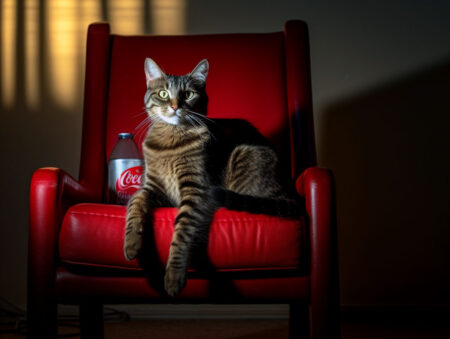
Giving soda to your cat can lead to several immediate and long-term health issues. In the short term, your cat might experience gastrointestinal upset, such as diarrhea and vomiting, due to soda’s sugar, carbonation, and caffeine. The fizzy nature of soda can also lead to bloating and discomfort.
Long-term, habitual consumption can result in obesity due to the high-caloric nature of soda. Obesity in cats is a serious health concern and can lead to conditions such as diabetes, arthritis, and heart disease. Dental problems, like tooth decay and gum disease, are another potential issue due to the sugar content of sodas.
Ingesting artificial sweeteners like xylitol can lead to a rapid drop in blood sugar (hypoglycemia), which can cause symptoms ranging from lethargy and loss of coordination to seizures, and in severe cases, can be life-threatening.
Expert Opinions: What Veterinarians Say About Cats and Soda
Veterinary professionals consistently advise against giving soda to cats. They emphasize that cats should mainly drink water, which is crucial for their hydration and helps maintain their overall health. Water aids in digestion, nutrient absorption, and the elimination of waste.
Vets point out that soda is unnecessary for cats and potentially harmful. They underline the dangers of sugar, caffeine, and artificial sweeteners to a cat’s health. These ingredients can contribute to obesity, diabetes, dental diseases, and caffeine toxicity.
Veterinarians recommend that if you’re looking to treat your cat, consider specially formulated cat treats, which can be a safer and healthier option. Always consult your vet about changes or additions to your cat’s diet.
Final Thoughts: Safeguarding Your Cat’s Health Against Soda Consumption
In conclusion, while soda might be a favorite beverage among humans, it’s not suited for our feline friends. The high sugar content, potential caffeine, and artificial sweeteners pose serious health risks to cats. The best and most natural beverage for a cat is fresh water, which adequately meets its hydration needs without introducing harmful substances.
Remember that as a responsible cat owner, your pet’s health and well-being are in your hands. By understanding what’s harmful to your cat and taking steps to keep such items out of their reach, you’re providing a safer, healthier environment for them to live and thrive.
Always consult a vet if you’re unsure about any aspects of your cat’s diet. They’re the best resource for ensuring your cat gets the care and nutrition they need. Remember, it’s always better to be safe than sorry when it comes to your furry friend’s health.
Kitten Tries to Drink Soda with Straw (Video)
"In ancient times cats were worshipped as gods; they have not forgotten this."
-- Terry Pratchett

